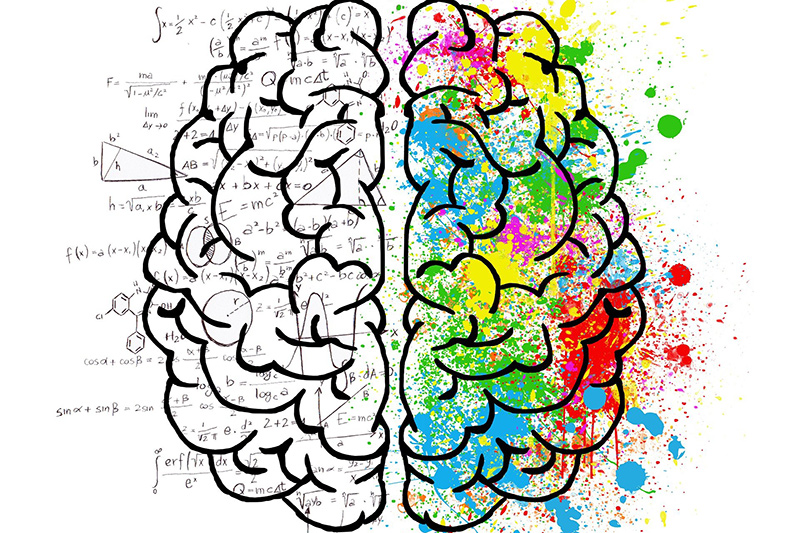Dem Überraschungsbesuch ein exquisites Abendessen servieren, den Fehler im Computerprogramm umgehen, ein Liebesgedicht verfassen: Einfallsreichtum ist in allen Lebenslagen hilfreich. Welche Netzwerke im Gehirn für solche spontane Handlungen nötig sind, hat ein internationales Forschungsteam nun herausgefunden, dem Psychologe Mathias Benedek von der Universität Graz angehört: Kreative Personen organisieren ihr Wissen flexibler und können dadurch entfernte Querverbindungen leichter herstellen.
„Was wir gelernt haben, speichern wir im sogenannten semantischen Gedächtnis. Das ist in der Regel gut strukturiert, was unter anderem hilfreich ist, um Bekanntes schnell erinnern zu können und um neue Dinge rasch zuzuordnen“, schildert Benedek. Bei kreativeren Personen ist das semantische Gedächtnis jedoch etwas weniger hierarchisch organisiert. Das fördert das flexible Denken.
Nicht nur die Querverbindungen im semantischen Gedächtnis spielen eine Rolle, auch die einzelnen Hirnareale, die bei kreativen Tätigkeiten aktiviert werden, sind anders miteinander vernetzt. „Diese Zusammenhänge zwischen dem Verhalten, den Gehirn- und den Gedächtnisnetzwerken konnten wir mit den Methoden der Komplexitätsforschung erstmals aufzeigen“, unterstreicht der Grazer Psychologe die Bedeutung der Erkenntnisse. Die Vernetzungen verändern sich ständig durch neue Erfahrungen. Somit lässt sich auch das kreative Denken prinzipiell steigern.
Die Ergebnisse der Studie, für die Mathias Benedek mit ForscherInnen des Pariser Brain Institute und des Israel Institute of Technology zusammenarbeitete, sind in der Zeitschrift „Science Advances“ erschienen.
